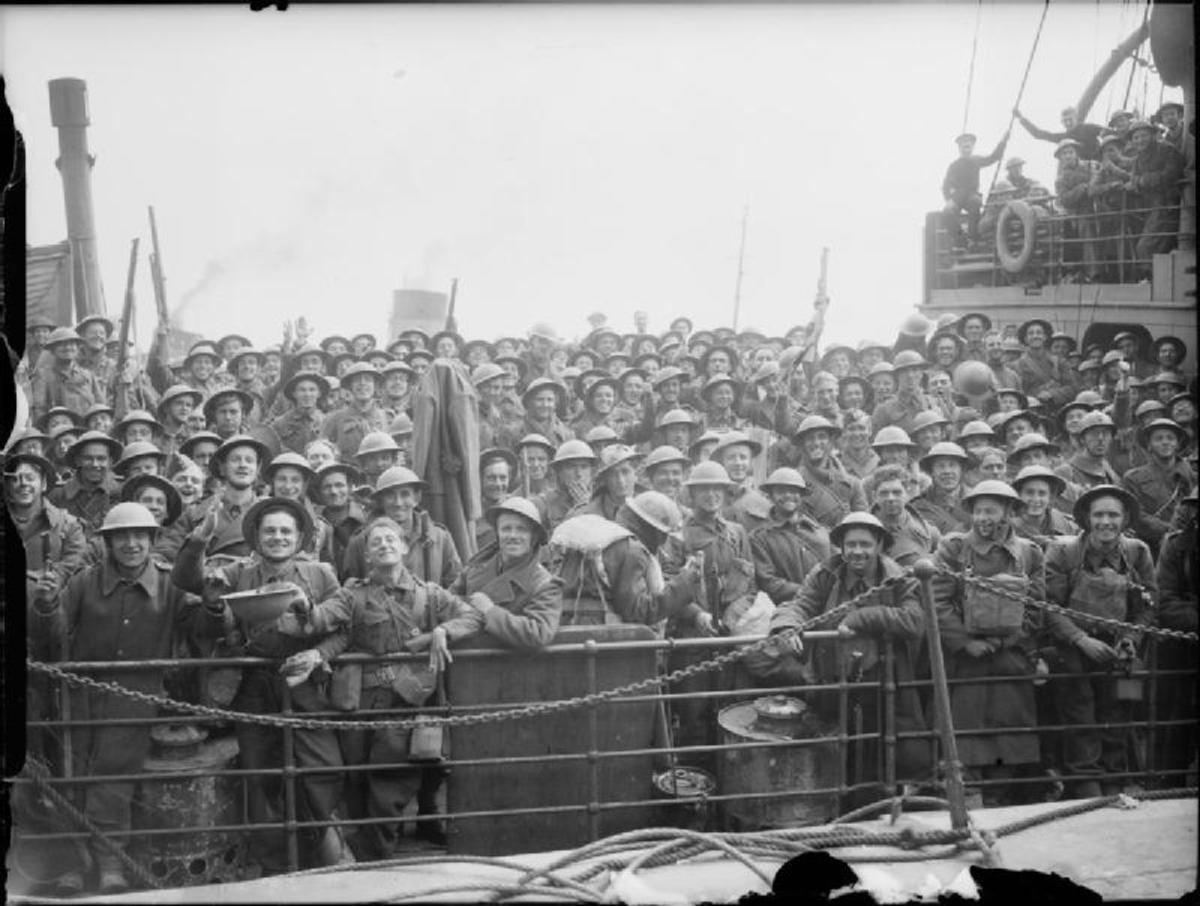- HubPages»
- Books, Literature, and Writing»
- Commercial & Creative Writing»
- Creative Writing
Relic of a Dead Era, Part 1
Waking up in a strange place shouldn’t feel familiar. And yet it was.
The room was a dingy antiseptic, like a field hospital. I looked around me, into the dim gray of failing lights. No, it wasn’t a field hospital. I was alone, and anything military or developing world would have lots of people. I couldn’t remember why those details stuck in my mind, when everything else was a haze. I lay back down, waiting for someone to come.
I dreamed of an alarm clock by the side of my bed, in a house that was full of sunlight and unbroken things, from before the war. I woke to beeping on a console. I rolled over to try to turn it off and my limbs wouldn’t work right. It was as if they were slow to take my foggy brain’s commands. My arm flopped out, but my hand didn’t quite reach it. I had to lay there with the IV dripping stuff into me, waiting for the energy to do more than hate the warnings it didn’t clearly communicate. I called out, “Can someone get that?” My voice was hoarse, weak, and the computer didn’t act. I tried to sleep through the alarm, but it is designed not to let you do that. I slowly sat up, looking for ways to get help. My eyes focused on a call button, surprisingly clear without my contact lenses in. I blinked a few times, suddenly realizing I’d forgotten I had needed them. Then again, were they in? It didn’t feel like it. I leaned over and hit the call button. The intercom made noise like an old AM / FM radio on a wrong station. I laid down, listening to the beeping, until I was angry enough to get up and go turn it off.
I dragged myself to the console. The IV line followed me, my literal life-line. I sat down on an old chair, and some dust puffed up. This room is supposed to be sterile. Where could the dust come from? I traced my hands on the control panel, an odd mix of new and old. There were no worn out parts, only neglected and faded materials. I pushed the flashing button to silence it. An LED screen lit up, a list in mostly orange and red. It was a status report, and the few green lines were unfamiliar or unimportant.
I pushed a button to scroll through it. My hand stayed on the button, as if lifting it was more work than I wanted, but the status list kept going, streaming faster than I could read by damning in its length.
A dawning horror awoke. Was this why I was alone? I glanced up at the IV, the monitors, everything else. I couldn’t remember how I got here. I couldn’t remember what I should do here.
I tried calling for help. I pushed the buttons that should send notices to others I was here, the sequences entered out of habit than thought. When it grew too tiresome, I slept with my head on the console.
Every time I awoke, I felt better. Yet the red warnings worried me. Would I run out of air? Would I run out of water or IV solution? Who would get me out?
I tried to pull up an access log. The files were empty as far back as I could find, and older files were archived. No one else had come for a long time. I checked security logs and exit logs and only found disposal notices. It took a long time staring at it to finally understand it. They hadn’t left; the dead had been disposed of. That alone, in the history and maintenance logs, had gone on periodically for years. That fact hit me and held me frozen, even as each breath became fast with paranoia. Years? I’d been here years?
I would have cried if the urge to throw up hadn’t hit first. I found a toilet on the other side of the room, and other biological functions kicked in. It hurt to remove the catheter, but nothing bad happened. It was a literal relief when the chemical toilet worked. The water ran in the sink. After resting on the floor, I took a shower. It misted but didn’t flow right. The bath wipes were still in the wrapper but more like dry tissue than wet bath wipes. I went back to bed.
When I woke up, the ceiling itself was red. Had I died in my sleep, and this was hell? No, that would have been hotter or colder, depending on your theology. I tried to read it, but the projector was out of sync, and the text blurry. Only a few lines in it were legible, but that was enough to be clear. It was my medical bay, my medical bed. I looked up at the IV; it was still sending down saline and drugs, but I couldn’t tell how much longer it would work or if it would start malfunctioning. An old joke about how long it took to take the blood out of someone popped up, before I suppressed it. I started looking for food and water. Then I thought to look for clothes.
Sitting in front of the console was familiar. Something French ran through my mind, meaning forgotten as quickly as what French was. The outline of the door to the outside was lit up now. I had a few pouches of water likely stale in the containers, ration bars that should last until the next ice age that might have started, the standard uniforms from the cabinet and nothing else. It had been nice to know that eating the rations had worked, both that my body could handle them and that it wouldn’t kill me. They’d aged. Yet looking in the mirror about the sink, I hadn’t much. Lost all that weight I’d wanted to, gained scars where tubes had been removed and sealed over with aging superglue surgical adhesive, but not much else. My hair was short. I stared at it, wondering if my head had been shaved when I’d been put in stasis. If so, this was two months or so. The computer couldn’t tell me exactly, because half the files were bad, and the other half so old it archived them offsite somewhere I couldn’t access and that might no longer exist.
The two warring impulses were to stay as long as possible and get better and to leave to find out what happened. My memories still weren’t clear, though serious injury might explain that. I stopped expecting someone to come, since no one had ever come here for me.
I’d give myself as long as I could in the shelter. If there’d been a major war after my injury, it may need time to be safe to surface.
I woke to the lights flickering. At first, I thought it was the lights on the ceiling with an electrical connection failure until I saw the controls flickering, too. This was a power failure for the whole unit. I rushed to the door to open it, praying to every deity I could think of when it didn’t initially depressurize. When it finally opened, I threw all the food, clothing, water and medical supplies I’d hoped to finish packing better into the next chamber before going through.
Then I realized it was a sealed hallway, and there was another door. I took the time to try to pack stuff up better after opening the next door by hand. If the power went out, I wouldn’t die in the dark trapped with supplies for weeks like an Egyptian something.
I wrapped up the supplies in a larger blanket and put it outside the doors. I wedged a blanket in each of the two doors, since the medical bay still had running water.
The room beyond was lit by emergency lights that were supposed to last forever on some nuclear process. Beyond that was darkness. I had no light source except these emergency lights. I decided to wait a while longer and try to find lights or something safe to burn in the medical unit. I drank as much water as I could while looking for something other than urine bottles to hold water. I found some IV bags, deciding it was something to fight dehydration, and took it to the hallway. After some thought, I took all the uniforms, too. No one else was using them. Then I slept out in the hallway, in case the doors closed due to some emergency protocol I couldn’t remember.
The light I woke up to seemed unnaturally bright. After a few minutes, my eyes adjusted to the sunlight. Memories floated in a haze, as if I were half awake though I was all the way awake. I walked down the hallway, half expecting a large hanger bay. The hanger was half the size I thought it was, but the other half was gone, blown away in a mix of molten metal and slagged rock.
That was adequate explanation for the malfunctions. I could see pieces of what had been the finest technology in the world melted, warped and blown into the wall on the other side of the hanger, like the abstract sculpture of an artist who I knew I hated but couldn’t name. Beams of sunlight streamed through holes in the rock, and that had been the bright light I’d seen.
The good news was, it meant air got in. The bad news was, it meant pathogens could get in. As I tried to think about it, a cleaning drone scurried around my feet. It scooped up insects crawling on the rock face and disposed of them.
That any maintenance drones worked was a positive sign. Then I remembered the disposal entries in the logs. They’d been dumping the dead. For years? How? I followed the maintenance drone as far as I could before my legs gave out. A drone approached me, verified I wasn’t dead, and moved on. It was too stupid to follow voice commands. I finally found the energy to follow it, careful not to go past the doorway that opened for another drone dumping the insects it had caught.
The rows of stasis chambers were mostly dark, empty because I could see the lids up. A few were closed but malfunctioning, obvious by the red lights. More than one was closed, lights a rainbow mix, but clearly malfunctioning because it wasn’t a human form inside. I stared at the closest, not quite sure what the black mess inside was, until it struck me. Something had failed, infection had spread, whether a person’s gut bacteria rotting the nearly dead person in stasis or a pathogen not quite controlled … that was a dead body and living mass that the machines hadn’t properly recognized yet.
I threw up, and the drones jumped into action. I let them clean as they could, then seized one. It tried to roll away, but I twisted it and turned on its working lights. I walked up to the control boards for the stasis chambers.
All were empty, malfunctioning or flagged for upcoming disposal. So there weren’t many drones left, for them to not have gotten rid of the dead yet. I read the status list several times. None of them were green, for a person alive and healthy and in stasis. Power levels falling, systems failing, status log … one decanting, completed two weeks prior, successful and responsive. Me.
I put the drone down, and it scurried off. I followed it slowly, the enormity almost too much to bear. It was bad enough to try not to think of years here, wondering about a family I couldn’t quite remember except that I’d had one. To think that everyone else who might have helped was dead, that there was no one else even in the same situation, was almost deadening. But life is a habit, so I returned to the hanger. I slept, because I couldn’t bear to think any more.
I stepped through the blasted entrance of the research lab, carrying what food and water and supplies I’d been able to gather up. A rusted steak knife was a poor weapon, but I dared not trust the security protocols on a half-rusted finger-print controlled gun. I stepped into the open, and the gray dry plains stretched before me.
The weight of memory was oppressive then. The tumble down ruins and few standing sections of walls in the distance had been a corporate campus. I closed my eyes until it stopped, memories overlaying the reality, making it impossible to think. When the memories stopped, I opened my eyes again. I focused on a tree in the middle. That would be my goal, and a clear marker for any other forays.
I had to rest twice before getting there. The biochemists had lied – being in stasis did take away muscle tone, despite all the drugs. When I reached the tree, it was solid and stable in my hands, an accomplishment. I turned to look –
The blonde man in my memories crouched beside me among all the trees and bushes. He looked so familiar it hurt. I turned toward the action in the distance. There were others and shooting and other things near one of the office buildings that had a roof blown off. He grabbed my hand and pulled me toward a building, his planned destination. I tried to keep up through the thick undergrowth, wishing that the quadrangle had been mowed …
I looked down in real life, and the ground was gray and dead. Across the distance, there were a few dead tangles that had been bushes. The buildings were further decayed. I could see the building he’d been taking me to. I slept through the night, half afraid of flying insects, but the air was as dead as the soil.
I woke to starlight, a half moon in the sky. The stars were so bright I thought it was a simulation. I looked around me, realizing that there was no light but moon light. This should only be possible in the country. I breathed in the air and heard the silence. The sounds of the suburbs, the lit up horizon of the cityscape, all gone. This was the country now. I went to the building that had been his destination. I dropped the food and water load behind the wall and climbed behind it, trying to think of why we’d come here.
He had jumped over the barricade and landed next to me. Doran grimaced as if he’d strained something.
“Are you all right?” I asked.
“I’m fine,” he grunted.
“You’re doing good for what, 40?”
“I’m not that old,” Doran remarked.
“I know I’m fuzzy on the math from stasis, but a decade after –“
“It’s been 20 years, and I interned for my father, your coworker –“
“Doran –“
“I’m Donald. Doran Ritchie was my father.”
“Then what business do I have to be with you?”
“You’re a biowarfare defense expert, and we need anyone with that expertise, and –“
“Twenty years?” My children, then, grown up. My family … “Oh, no, why was I –?”
“There’s no time for this discussion, I need to get you out of here, too many people here want anyone like you dead so that the solutions to the problems you made die with you –“
The weapon discharge came at an angle above us, striking him while the only singing me. The sonics left my head ringing. I scooted away from the dead body, my legs not quite working. I heard arguing as the soldiers approached. They scanned me, debated things, and then hit me in the head …
I woke up on the hard ground, sunlight in my face. A lot of memories were still fuzzy, but I didn’t want to remember them. I sat up against the wall. There were still singe marks on the wall. My best guess was that the people who found me identified me and put me back in stasis. It was made, after all, for prolonging the life of critical patients in case of injury until they could be repaired.
I looked down at my legs, where the singing hadn’t left a scar. I pulled up the sleeves where the tubes that had been in my arms had been. I was well healed without any sign of infection. So the nanites were still working …
I could remember the nanite experiments, then. They’d been prohibited for general use and distribution, but I’d volunteered for the medical ones. No enhancements like being a super soldier or cyborg or anything fancy; just repair the health problems I had. I’d get the simple maintenance ones that couldn’t be a threat to humanity or get out of control or malfunction short of turning off like malfunctioning cells self-destructing.
Was that why I’d been put back in stasis? The other side didn’t want the tech out, so they put me in stasis to control it. And my side had left me in there to heal, because they didn’t have the resources to do much else and figured I would recover, until they were wiped out. Or my side had left me in stasis after whatever had landed me in stasis the first time, until Doran got me out; he was killed for trying to steal me and I was injured, so my side put me back in stasis to recover a second time. Then my side was wiped out and I was forgotten … My head hurt from trying to think it through.
Was this why I hadn’t died in stasis like the others? The nanites had controlled the risk of any infection, even as they’d slowed aging and undone the damage of any malfunctioning stasis chamber? That made sense. That also meant no one else had the nanites then.
The site had been overgrown decades ago. It had been blasted sterile since. That would explain the death of everything down to the bedrock except a few cockroaches.
I breathed in the air, wondering if I could die from lack of food or water. Yes, I could, though the nanites would cannibalize a lot of me in the process. In theory, I could eat the bugs the drones broke down for nutrients … I almost gagged realizing that they might have been doing that, to keep providing nutrients to those in stasis when the supplies ran out.
I headed back to the hanger. I had to hack a maintenance drone and find more information. I knew the weapons we’d made were good, and the other side’s was, too, enough to wipe out everyone several times over. But I didn’t want to think it was just me and the nanites plus a few cockroaches. Maybe, just maybe, I could try nanites in one of the dying masses in the tubes and try to save someone or make something.
I made my way back over the mostly-dead landscape, hoping to make something or save something out of the failed tech. I had too, because I now remembered that the nanites could keep me alive for centuries as long as I didn’t starve to death. And living like a scavenger in the wastes we’d left behind was a fate worse than death, which clearly wasn’t going to get me. I didn’t deserve it, no matter which side I was on, though I still couldn’t remember what side that was.
Then again, it really didn’t matter.
All that mattered was finding someone, anyone, and starting over.
And if that happened, not remembering everything would be a blessing.
Relic of a Dead Era, Part 2
- Relic of a Dead Era, Part 2
Now, the conclusion of the short story "Relic of a Dead Era".

© 2018 Tamara Wilhite








